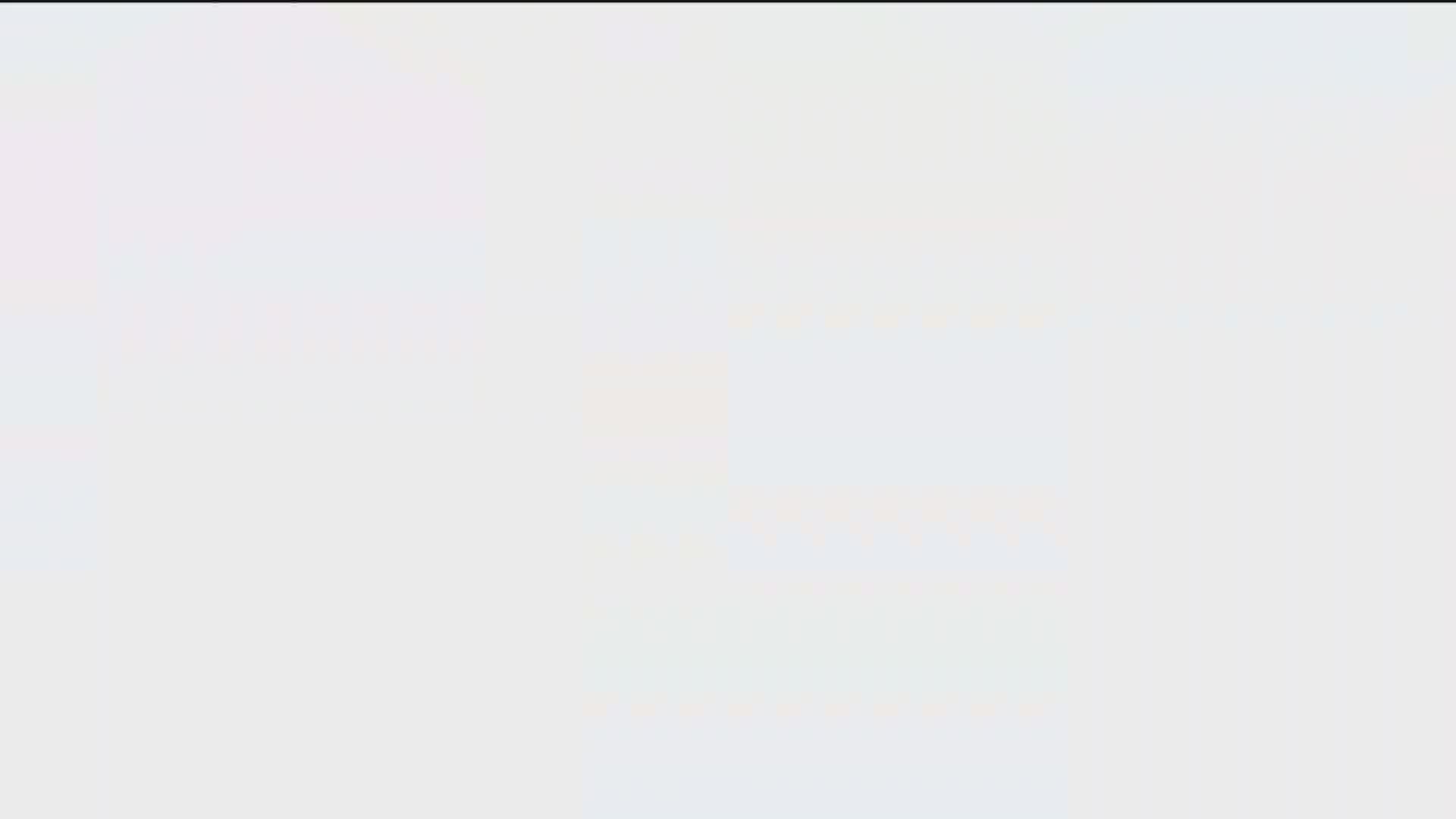SAN DIEGO COUNTY, Calif. — Sharp Grossmont Hospital has a new employee with a very important job - to shine a bright light on cleanliness.
His name is Lumiere, and he’s a disinfecting germ-zapping robot.
Lumiere shoots blasts of ultraviolet C light. It's a shorter wavelength than the sun's ultraviolet A and B lights that we're more regularly exposed to on a daily basis.
Lumiere is brought into rooms after they've already been cleaned as a second line of defense against germs. UVC has been used in other industries for decades to effectively decontaminate surfaces.
“It actually works to break down the DNA molecules and sort of begin to collapse that cell structure or bacteria and spores so they're no longer living and can do any harm to anyone,” said Neil Mandalia, Sharp Grossmont’s Environmental Services Director.
Mandalia said the hospital has two robots. One is currently dedicated to the area with COVID-19 patients, and according to Mandalia, recent testing from an outside agency proves it works.
“Lumiere and this light will in fact break down the structure of Covid-19,” said Mandalia.
The radiation is so intense that humans cannot be in the room when Lumiere is doing the cleaning. The robot is so consistent that no spot in the room is missed.
“A room, any space as we all know, is only as clean as the last person that came into it,” Mandalia said.
The hospital’s other robot will be used for the rest of the facility, which is open and treating non-COVID-19 patients.
Sharp Grossmont said they've actually seen a noticeable reduction in patients for other serious issues like heart attacks and strokes. They wonder if people are nervous about coming in because of the coronavirus outbreak.
Mandalia hopes people will see that hospitals are open and safe, adding, “This really just gives us that extra level that is appropriate for a hospital.”
Sharp also has these robots at its hospitals in Chula Vista, Coronado, and San Diego.
View all News 8 coverage of coronavirus / COVID-19
News 8 has joined forces with The San Diego Foundation to raise immediate, emergency funds for our most vulnerable neighbors in need. Here is how you can help.
We also have a Frequently Asked Questions page we will continue updating with the latest information and reports.
Click here to watch "Facts Not Fear," a News 8 Special on coronavirus from March 26, 2020.
BACKGROUND
According to the CDC, coronavirus (COVID-19) is a family of viruses that is spreadable from person to person. Coronavirus is believed to have been first detected in a seafood market in Wuhan, China in December 2019. If someone is sick with coronavirus, the symptoms they may show include mild to severe respiratory illness, cough, and difficulty breathing.
Currently, there is no vaccine, however, the CDC suggests the following precautions, as with any other respiratory illness:
Know how it spreads
There is no vaccine
The best way to prevent illness is to avoid being exposed to the virus
It is thought to spread mainly from person-person between people in close contact
And believed to be spread by respiratory droplets produced when an infected person coughs or sneezes
Protect yourself
Wash your hands with soap and water for a minimum of 20 seconds
If soap and water aren't available, use hand sanitizer that contains at least 60% alcohol
Avoid touching your eyes, nose, and mouth
Avoid close contact with people who are sick
Put distance between yourselves and others
Protect others
Stay home when you are sick
Wear a facemask if you are sick
Cover your cough or sneeze with a tissue, then throw the tissue in the trash
If you don't have tissue, cough or sneeze into the inside of your elbow
Immediately wash your hands after coughing and sneezing
Clean and disinfect frequently touched objects and surfaces using a regular household cleaning spray or wipe
You can find information on disinfecting and cleaning on the CDC's How to Protect Yourself page.
The California Department of Public Health has issued guidance on the use of cloth face coverings to protect against the spread of the novel coronavirus COVID-19.
The County of San Diego has made face coverings mandatory for those working with the public including grocery stores, pharmacies, gas stations, convenience stores, and similar businesses.
While officials say these face coverings are not a substitute for practices like social distancing and handwashing, there is evidence to suggest that the use of cloth face coverings by the public during a pandemic could help reduce disease transmission. Officials do not recommend the public use N-95 or surgical masks which are needed by health care workers and first responders.

